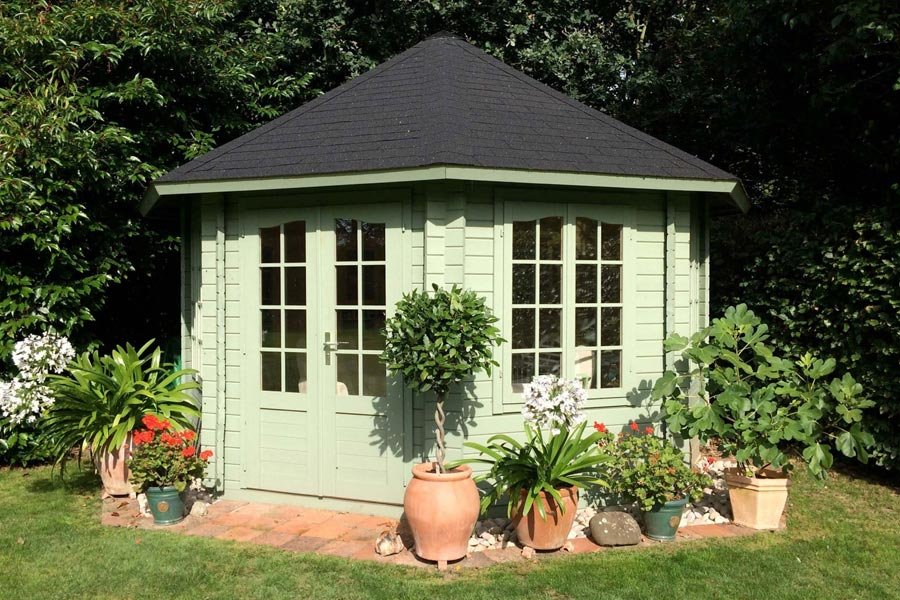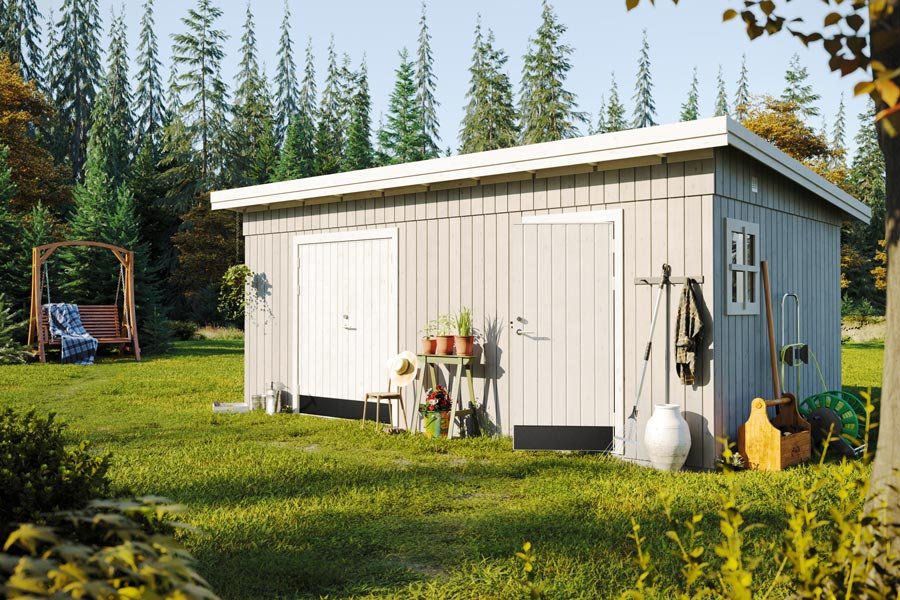Thinking of keeping chickens in your back garden?

Until a few years back, there were five ‘typical’ British family pets: dogs, cats, rabbits, guinea pigs and hamsters (in no particular order). But there now seems to be a sixth on the list: chickens. Keeping chickens is now a fairly common practice in suburbia, and the humble hen is a regular inhabitant of the UK’s back gardens. The benefit of keeping chickens is clear: not many other pets lay you an egg most mornings!
They also make friendly pets: there’s something very endearing about a free-range hen racing across the garden to greet you, with a level of enthusiasm that only a dog could equal. The clucking of contented hens also adds a new level of homeliness to a back garden.
Which henhouse is best for keeping chickens?
The rising popularity of back garden chicken-keeping has been fuelled by the growing range of henhouses on the market, in particular, the plastic ‘Eglus’, available in multiple colours from Omlet. The compact designs fit easily into even small-ish back gardens, need minimal maintenance, and are easy to clean (this is important for keeping the hens parasite-free). Prices start from £235.

If you’re not a fan of brightly coloured plastic, and want a more traditional timber henhouse, the same buying principles apply as with any timber garden building. Look at the quality of:
- the timber – you want dense, robust, slow-grown softwood timber for extra insulation and longevity (or if the budget allows, hardwood)
- timber treatment – ensure that the timber is treated with a pet friendly wood preserver to enhance its lifespan
- the fittings – you want them to be solid and rustproof
- the construction – look for pressure-treated foundation joists, a strong build and a good-quality roof
You should also pay attention to ventilation: chickens are vulnerable to respiratory problems, and ammonia can build up from their droppings.
How much space do I need for keeping chickens?
According to PoultryKeeper.com (a great source of advice for would-be hen owners), each chicken should have a minimum of 1 sq metre in the run, though 2 sq m per bird is preferable. If space in your garden is limited, it’s possible to buy high-rise runs, such as Omlet’s Eglu Go Up coop, where the run is underneath the henhouse.
Keeping chickens in a back garden; do I need permission?
In the UK, you do not generally need permission unless you want to keep 50 or more chickens (in which case, you need permission from Defra – the Department for Environment, Food and Rural Affairs). However, you may be subject to byelaws, lease conditions or the deeds to your house preventing you from keeping chickens, and there are rules that may apply to back-garden poultry keepers. Interesting, laws relating to livestock also apply to chickens, and there have been instances where local councils have been involved in cases with ‘nuisance’ hens (more on that below).
In the first instance you should always also consult neighbours. Chickens can be noisy (eg when laying eggs, or when keen to be let out of their henhouse on light early mornings); smelly, if their henhouse is not cleaned weekly; and damaging to neighbouring gardens if they repeatedly escape. If you have neighbours who are proud of their immaculate garden they will be far from happy if they see escaped hens digging up their meticulously planted flower beds!
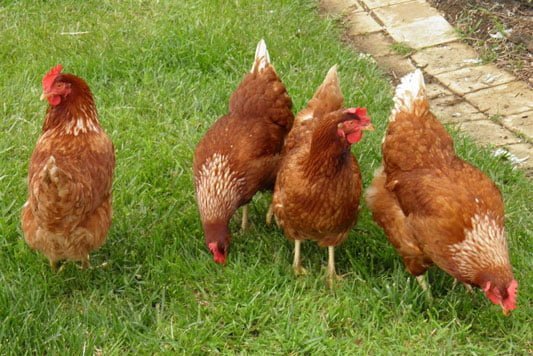
If your hens do regularly escape it will be your responsibility to stop this from happening, and you can do this quite simply by running chicken wire or plastic trellis around the bottom of your fence or hedge. If your hens are able to fly over boundary fences then you can clip their wings, keeping them on terra firma. It really is worth doing both of these things as persistent damage to a neighbours gardenscan quickly turn even the best of relationships sour. In an article on problem chickens David Fleming (head of the property litigation department at William Heath & Co.) outlined that under the Animals Act 1971 that people who keep chickens in suburbia are liable for “damage caused by trespassing ‘livestock'”. If things turn nasty between neighbours action can be taken by way of the Council Environmental Health Officer, and chicken owners are liable for damage caused by escaping chickens (as well as costs incurred).
If you’re thinking of keeping chickens in your own back garden then you really need to check with your neighbours first, and also ensure that your hens cannot escape. Many of the other associated problems can be minimised – for example, there’s good advice on reducing noise in this PDF. The occasional gift of freshly-laid eggs can also keep neighbours well disposed towards the hens.
How many chickens should I buy?
Chickens are gregarious birds and need company. Common advice is to buy three – this means that if one dies (and, sadly, chickens are vulnerable to a range of problems, from respiratory problems to foxes), you are not left with a depressed, lonely hen. Also, if you intend to buy young chicks it’s best to do so in summer; young chicks can’t cope with cold and can be killed if the temperature drops too low at night (for instance, if there’s an unexpected frost late in spring).
Should I buy a cockerel?
No! In case there’s any confusion about that, no! Unless you live in the middle of nowhere, have no neighbours and intend to breed chickens, then there is no need to buy a cockerel. Hens are perfectly happy without a cockerel, and cockerels don’t lay eggs but they do consume just as much feed (which will push your maintenance expenses up).
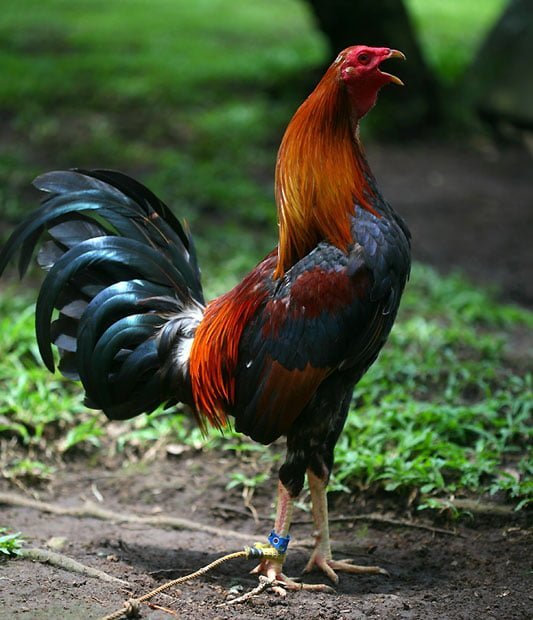
In summer, when days are longer, cockerels can crow from as early as three in morning and they won’t stop until midnight (and treble glazing and ear plugs aren’t enough to block out the sound from some birds)! Keeping a cockerel in suburbia is the fastest way to lose friends and alienate people (not to mention the threat of visits from the Council about noise pollution and possible legal action from sleepless neighbours).
Where can I buy chickens?
Forums and advice boards on sites such as Omlet and PoultryKeeper.com should have details about where you can buy hens locally. Generally, look for birds with clean eyes; and an upper and lower beak that meet in the middle. Signs of poor health may include lots of muck on the feathers around the vent; or raised scales (eg sticking out at 90 degrees) on the legs and feet.
Will chickens ruin my garden?
More than likely! Chickens do scratch up the ground with their feet, meaning they can quickly reduce the grass in their run to a dust bowl or bog (depending on the weather), and they can leave droppings on paths, patios and decking areas if they are allowed out of the pen.
If your hens are free-range, you will find they have a particular affection for scratching around in window boxes, posts, containers and newly-planted beds (and they can easily dig up flowers you have just carefully planted). Stones at the base of plants or in pots can help to prevent this, however some hens will gleefully dig up slate and gravel paths in search for worms (spreading stones everywhere).
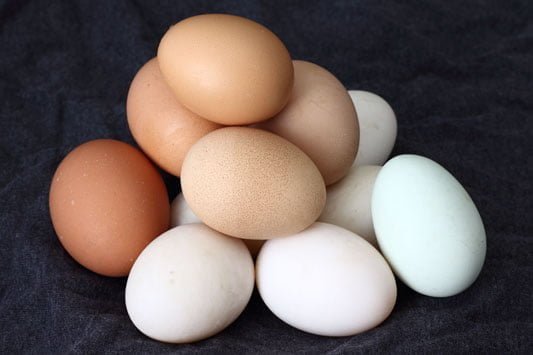
They may also lay waste to your vegetable patch (unless you fence it off), so although you will have lovely fresh eggs to cook with, your veg may not look up to its usual standard. You can read about which plants chickens eat, or will avoid. Ultimately, if you don’t want your hens to make a mess of your nice tidy garden they will need to be penned in.
Where should I position the henhouse and run?
Chickens can overheat easily, so need the option of shade. But they also seem to enjoy sunbathing, so a mix of sun and shade is ideal. Some poultry keeping websites advise putting the run against a garden wall, as it provides the chickens with shelter and a sense of security. The ground around the run should be even – both chickens and foxes are expert at finding their way underneath chicken wire.
Other than that, it is a question of garden design and individual preference – whether you prefer to have the chickens somewhere you can see them out of the windows or from a patio, or more hidden away from sight.

Whatever you decide to do, when it comes to keeping chickens always check with neighbours first, and if you plan to allow your chickens to roam free-range, ensure that the boundary of your garden is secure. You can then sit back and enjoy the company of a loving pet whilst tucking into a delicious, fresh, free-range egg!






